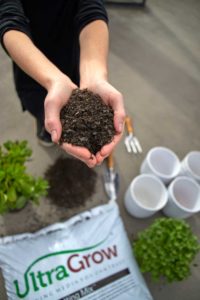Everything you need to know before starting a garden

Whether you’ve recently purchased your new home or are building from scratch, freshening up an existing garden or simply a renter wanting to do a spot of gardening, here are the 5 most important things you need to know before getting started.
Size, location and accessibility
The size of the average suburban block is on the decrease while the modern family home has an enviably large floor plan, all this spells for less outdoor green space especially when you’re trying to squeeze in a pool, driveway, garden shed and outdoor entertaining space. It is important to maximise whatever surplus space is available and plan your garden carefully.
Narrow beds, north facing heat traps, inaccessible rear gardens all make for difficult or poor locations to maintain healthy gardens. When building a new home on a small block, consider access to the rear of the property and where possible allow up to 1200mm for barrow and small machine access. Narrow beds tucked up against the side of the house generally lack the long-term sunlight required for most plants to thrive, but can also be subjected to scorching midday sun, causing shade lovers to suffer.
 Soil is the foundation
Soil is the foundation
So little thought is given to the soil that will be tasked with supporting healthy plant growth for years to come. New build properties suffer from inferior soil quality often caused by cheaply imported fill used to level up and builders waste and rubble. Many gardeners believe they can plant into this soil or other cheaply made poorly composted products and expect great results. To reference a recent article by our Group Director, Terry O’Shea, “Soils ain’t Soils”. It’s often not as simple as just throwing in a bit of compost and a few handfuls of organic fertiliser. Don’t believe us? Check out the extensive project carried out by Jerry Coleby-Williams from Gardening Australia. He undertook a long project of turning the soil on his suburban plot into a productive environment to support healthy growth. Jerry took a rehabilitation approach but in some cases, particularly with new builds, it is near impossible to rehabilitate.
Importing a quality soil will initially be a larger investment but will save you time and money in the long term. If you ‘re tossing up where to spend your money, think quality soil and smaller plant stock. Your investment will be paid ten-fold with fast root establishment, early growth and a healthy plant. After 12-months your plants will have surpassed the growth of the larger initial stock and you won’t look back.
Plant selection
See our previous point regarding quality soil and then read on… Save on plants and spend on the soil. Buying small plant stock primed for the immediate establishment and fast growth is a great option. Larger pot bound stock not only costs more but can take months to establish. Speak to your local nursery person for advice for your location rather than selecting plants you simply like the look of. Scout the neighbourhood and take note of what is thriving in your local climate.
Mulch is essential
Every garden needs to be mulched. Every garden needs to be mulched. EVERY GARDEN NEEDS TO BE MULCHED! No, the record isn’t broken, it’s simply a point so important we wanted to say it three times! Mulch does more than just make your garden look great. It is essential for adding organic matter back into the soil, protecting the soil from erosion, trapping in the moisture and keeping the weeds at bay.
When it comes to mulch selection the choice is seemingly endless. But a simple of rule of thumb is the more course the material the slower it will break down. This means it will need to be replaced less often. Obviously, the reverse is also true. Finer mulch will break down faster adding essential organic material back into your soil. This is a great thing!

Fertilising is required
Plants need food to survive, just like your lawn. A regular fertilising regime is essential to encourage long-term healthy growth throughout the year. Many gardeners will give a new plant a dose of ‘something’ on planting and never again. Fortunately, most plant stock some pre-loaded with slow release fertiliser designed to feed while in the nursery environment, but this is not enough! Seasonal fertilising coupled with regular liquid applications (Seasol or Charlie Carp) will set up your garden for years to come.
Once again, soil selection is key to the healthy establishment of plants as well as initial feeding. All UltraGrow Garden Soils and Potting Mixes come pre-loaded with fertiliser to feed your plants up to 9-months (see individual products for feeding times).

 Soil is the foundation
Soil is the foundation